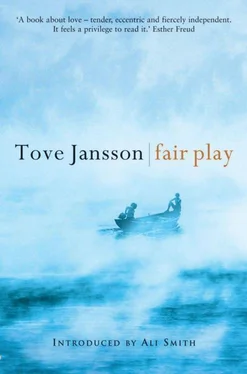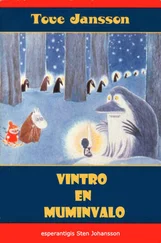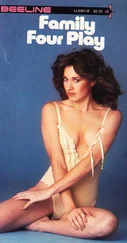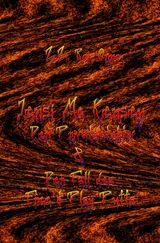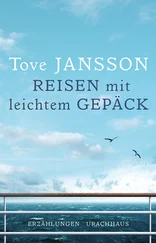Once upon a time — astonishing but true — Tom and Mari had planned to emigrate to Tonga in the Pacific Ocean. They displayed neither disappointment nor relief when Her Majesty’s Service replied very politely that as a result of the recent typhoons they could not at the moment give any attention to immigration. Tom and Mari searched out a more northerly island and built a cottage and spent their summers there for many years. Tom wanted a skylight so he could look at the stars before he went to sleep, but the window leaked when it rained. Then they bought a telescope from an ad, unfortunately an older model that didn’t make the stars very much bigger.
All of that was a very long time ago.
It was now already the end of August, and the sun was setting far south of Tom’s island. There were no small boats on the water, only fishing boats, morning and evening, passing by with their black salmon flags fluttering at their sterns. But Tom was often out for the fun of it. Mari would see his boat heading straight out to sea, early and late.
“Jonna, listen to me. In those days we used to row, Tom and I. We rowed out to every skerry, the tiniest rocks, farther and farther out. Don’t you ever want to go off to other islands?”
“But we’re already on an island. They’re all pretty much the same. And you can’t go and waste a whole work day playing picnic.”
One morning Tom came to get putty and window paint. He’d brought spring water and the mail. Mari had a letter from Johannes, one of the very few he’d ever written her.
“Jonna,” she said, “Johannes wants to come and visit. You remember Johannes. Just for two days.”
“But you know the cottage is too small. And the tent blew to pieces.”
“I know, I know, but he doesn’t want to stay in the cottage. He wants to sleep on an uninhabited island in a sleeping bag. He used to talk about it, but we never did it.”
Tom thought of saying something but kept quiet.
Jonna said, “Don’t you think Johannes is too old for a sleeping bag? And it’s almost autumn. When is he coming?”
“Tomorrow,” Tom said. “On the eleven o’clock bus from town. He called the store. I can go in and pick him up.”
They thought about it.
“Have you got sleeping bags?” Tom said.
“Of course we have,” Jonna said. She put the cans of putty and window paint in the basket and walked Tom down to his boat. They agreed that the best uninhabited island was Västerbådan, where it was easy to go ashore. The radio had promised clear weather.
Jonna said, “I’ll pack some food for them.”
“Good,” Tom said. “As I recall, he doesn’t think of stuff like that. So long.”
“Bye.”
That evening, Mari told Jonna things Jonna had long known but that now seemed important again.
“You know, Johannes and I had big plans and ideas, and one of the biggest was to live a natural life, peel away everything unnecessary, live in a cave or some such place — and try to grasp essentials. I know what you’re going to say, but don’t say it. Anyway, Johannes had his ideas long before the flower children came along!”
“This was in the fifties?”
“End of the forties, I think. But he never had time to live the natural life. And that time we collected money for that abandoned house in southern France and were going to invite friends who wrote or painted and needed a place to work in peace — but every time we’d got some money together, he’d give it to some strike fund… And the whole time we had this idea of living on an uninhabited island.”
“Where do you sleep on an uninhabited island?” Jonna asked.
“Don’t be dumb. I said sleeping bags.”
“Did he believe all that stuff?”
“Of course! Naturally. But we never had the time.”
“And now he’s got the time?”
“No. No, I don’t think so.”
“I hope it goes well,” Jonna said. “Anyway, I’m sending along sandwiches and coffee and some canned goods. Is there anything he specially likes?”
Mari answered immediately. “Baked beans. And he doesn’t like coffee with powdered milk.”
“Excellent, we’re out of powdered milk. I’ll go and look in the cellar.”
Mari went out on the granite slope.
I know. I remember what he wants. To lie on his back in the heather and look at the stars a whole autumn night and listen to the sea without having to say a word. But there was never enough time… If only it doesn’t get cloudy. Once he promised we’d live in a tent on Åland for a whole week, and I waited and waited but he sent word that he had too much editing to do… I borrowed a bicycle and pedalled all night. It was June and the nights were light and there were rosehips blooming everywhere and I found the village where his mother lived and she said, “Aha, so you’re Johannes’ friend. Come in and have some coffee.” I could ride a bicycle again sometime; they say you don’t forget, it’s like swimming…
Mari and Jonna woke up early. The weather was clear and quite cold.
“So you don’t want to take the primus stove?”
“No, no,” Mari said. “It has to be a campfire. The campfire is very important.”
Tom came right on schedule, a tiny dot in a straight line toward the island. Pretty soon they could see there was only one person in the boat. He jumped ashore and tied up. Johannes had called the store to say that he had too much work at the paper, unfortunately, and he was sorry.
“Oh, well,” said Mari. “It doesn’t matter.” She turned abruptly and walked up toward the cottage.
Jonna was silent for quite a while.
Tom said, “Those old posts you were talking about. Shall we have a look?”
They went and looked at the posts. Some of them were only good for firewood, but quite a few could be used in Tom’s new dock.
Jonna said, “It’s funny about me, I’ve never really understood camping trips. Your sister gets a little too romantic at times. Changing the subject, are you busy with anything at the moment?”
“Just puttying the windows.”
“Is it a long time since you slept in a sleeping bag?”
“Oh, maybe twenty years, I guess.”
When Mari and Tom headed off for Västerbådan, Jonna stood watching until the boat disappeared behind the skerries. The wind had died.
That night she went out on the slope beside the cottage. Not one cloud disturbed the stars.
A perfect night.
IT WAS NOT EASY TO SAY PRECISELY when the change had occurred, but Jonna was different. Very clearly, something had happened. It wasn’t something you noticed right away, not even enough to make you ask if she was feeling well or was upset about something. No, it was imperceptible, impossible to put your finger on. But it was there. No irritation, no depression, no pregnant silences, but Mari knew that Jonna was brooding about something she didn’t want to talk about.
They saw one another only in the evenings, because Mari was making sketches for book illustrations, a big commission that made her both happy and anxious. When she came over to Jonna’s, dinner was ready, they ate as usual with books beside their plates and watched television later. Everything was calm and exactly normal, but Jonna was somehow distant, far away somewhere. Mari had set the table with the wrong plates and forgotten the napkins, and Jonna said nothing. The man next door played scales on his piano and she didn’t notice. Johnny Cash came on the radio and she didn’t put in a cassette. It was frightening. When the film for the evening was over, she didn’t say a word even though it was Renoir. They were sitting in the library, and to have something to do Mari started leafing through Jonna’s mail, which lay in a pile of the table. Very quickly, Jonna reached for her letters and took them into her studio.
Читать дальше
